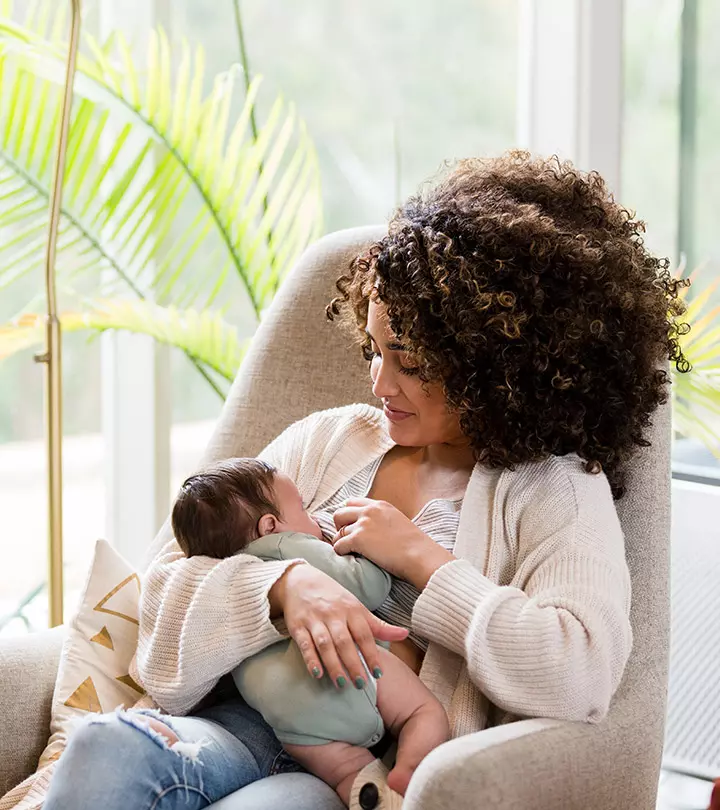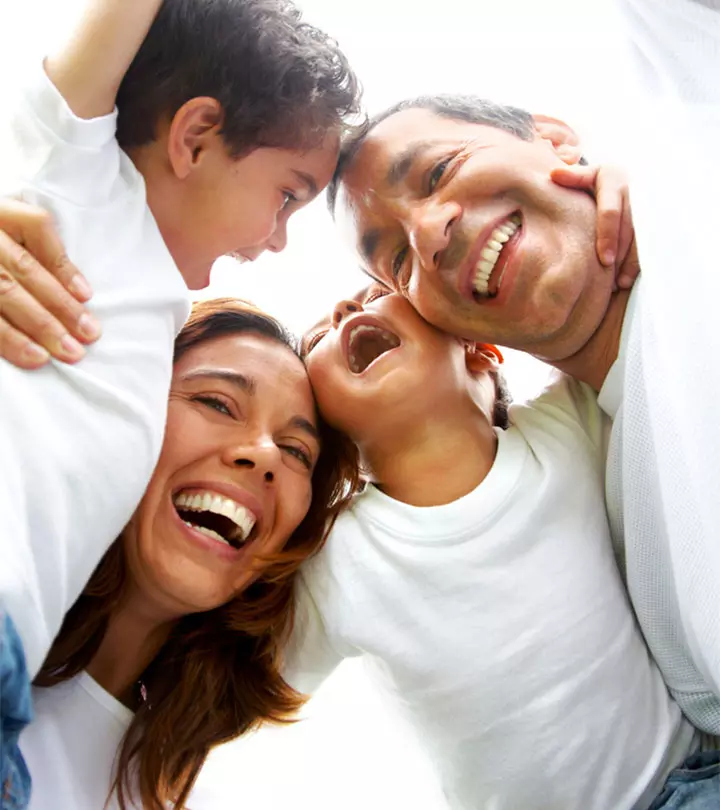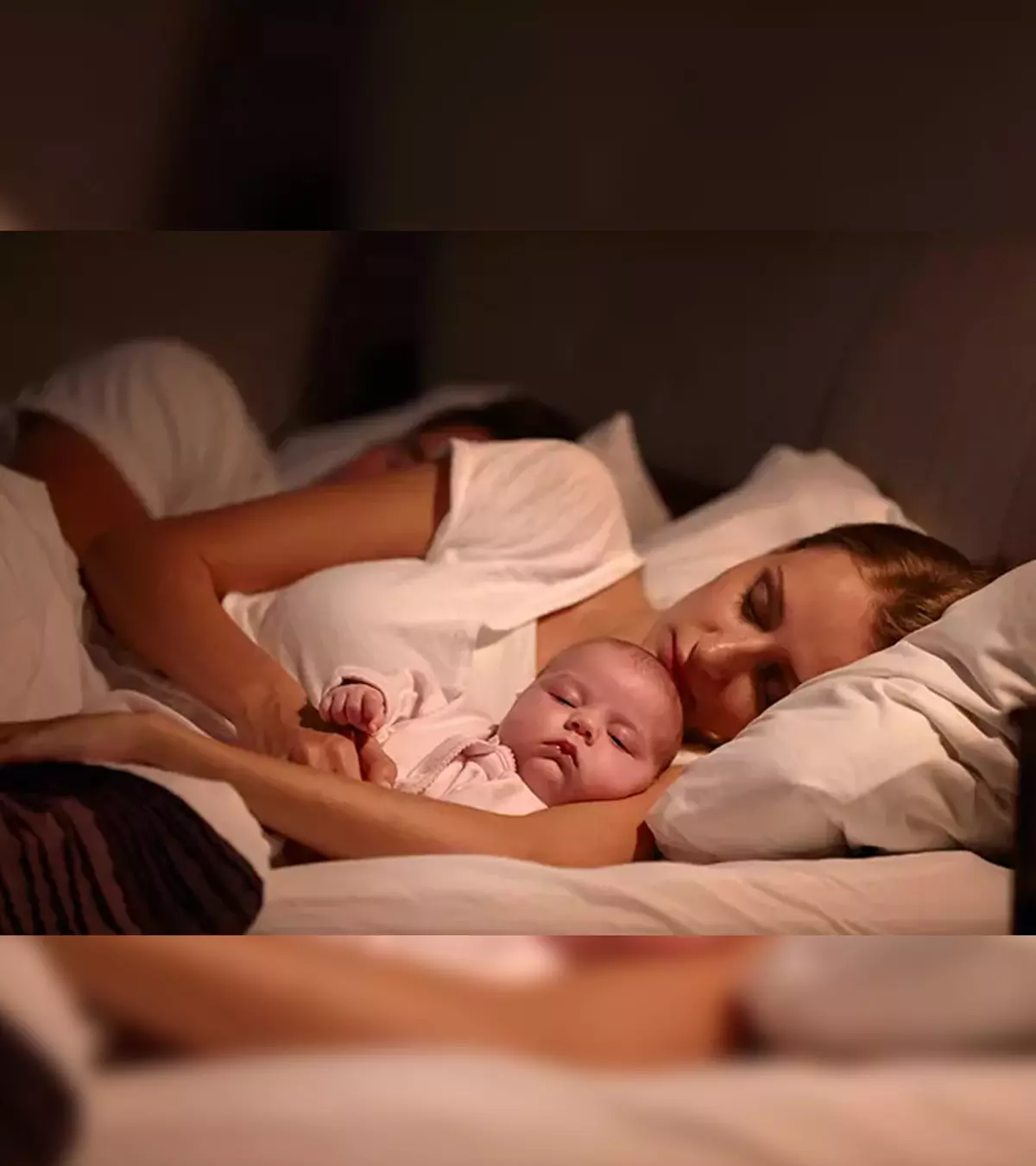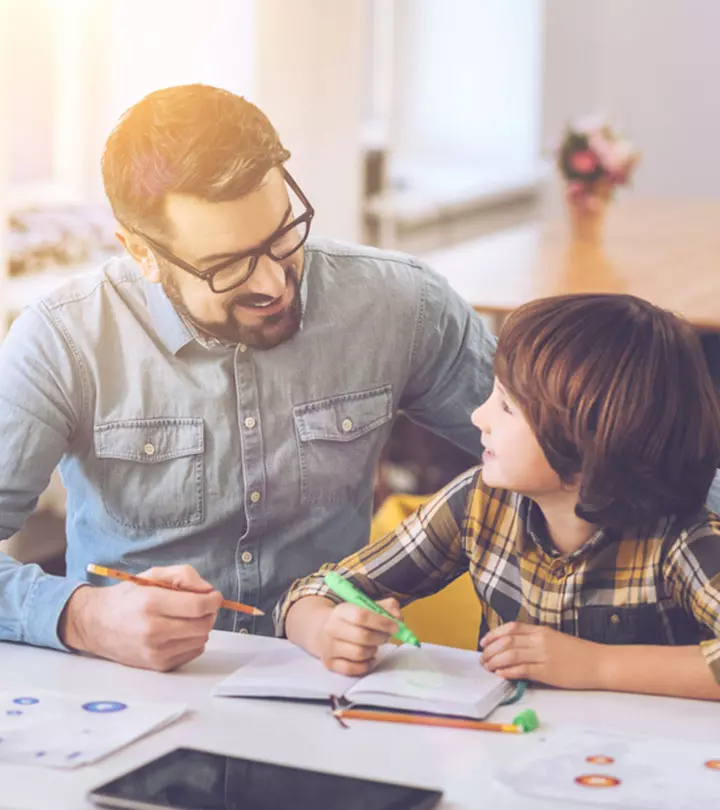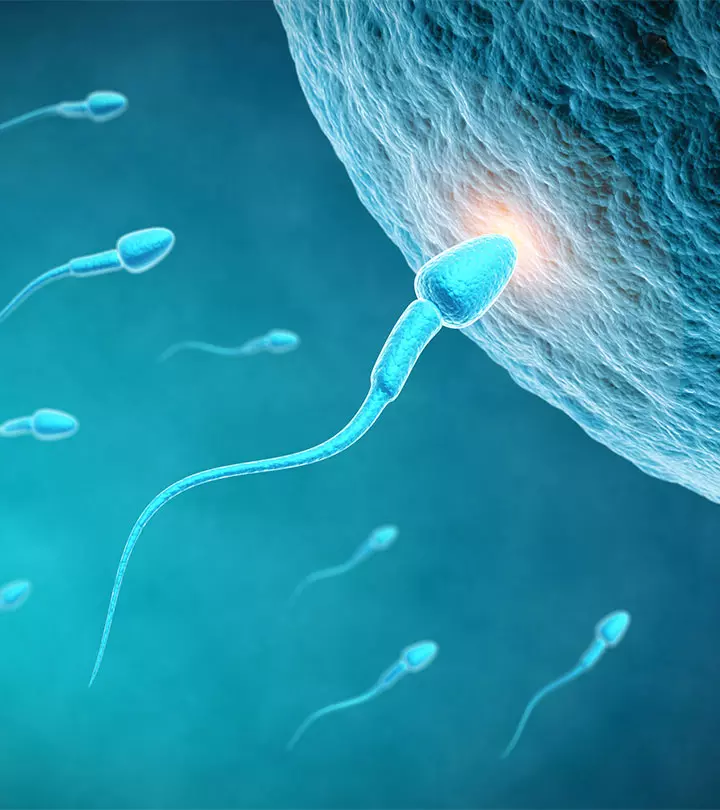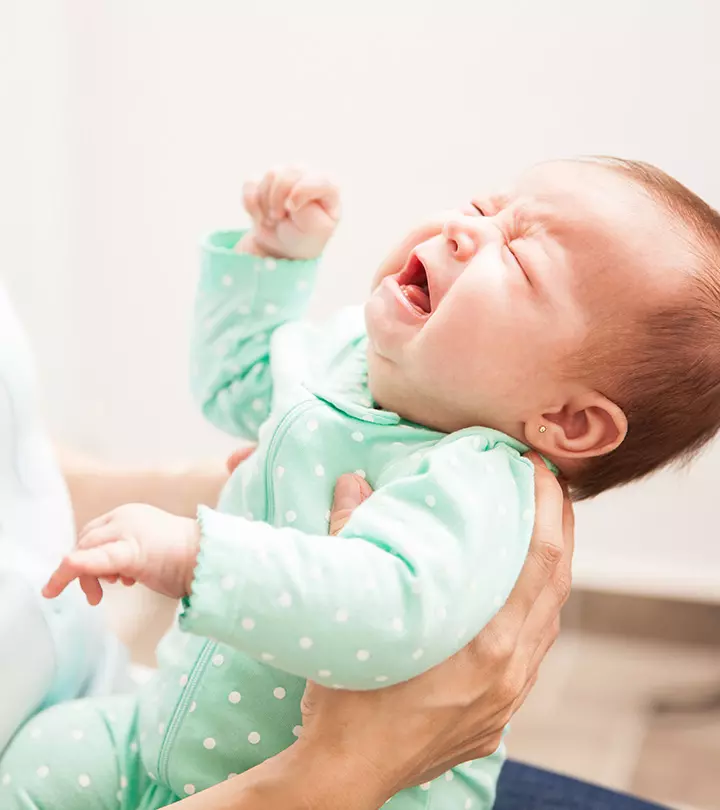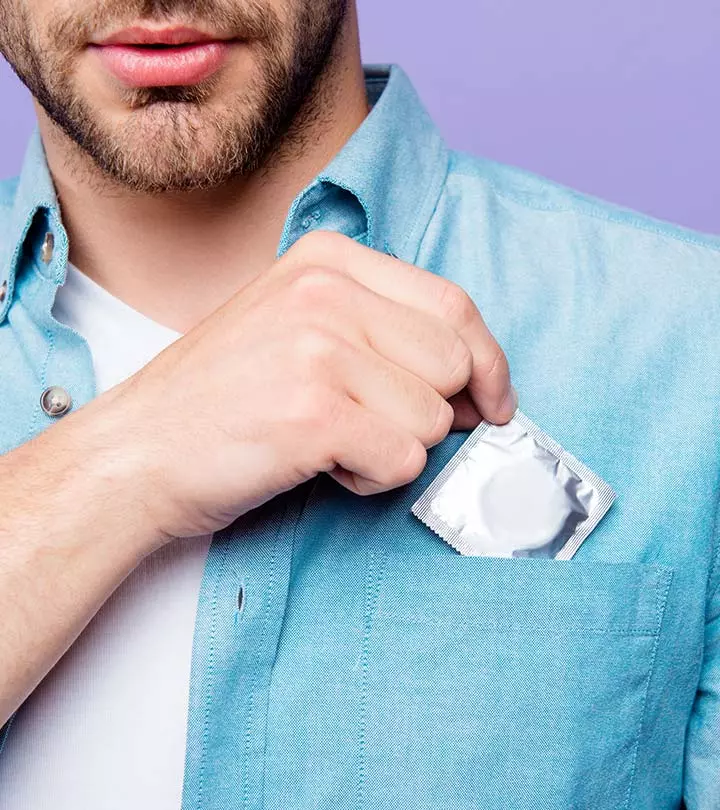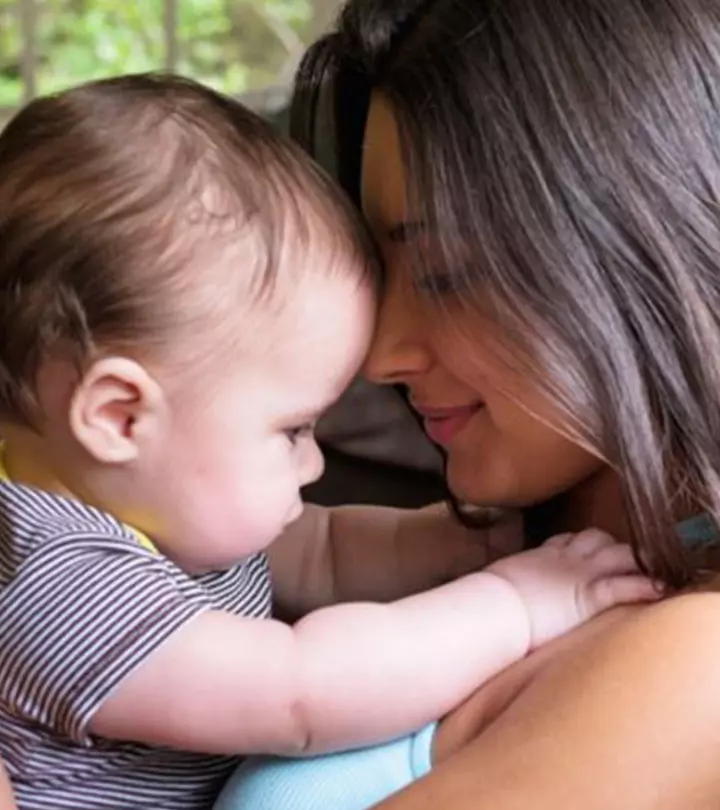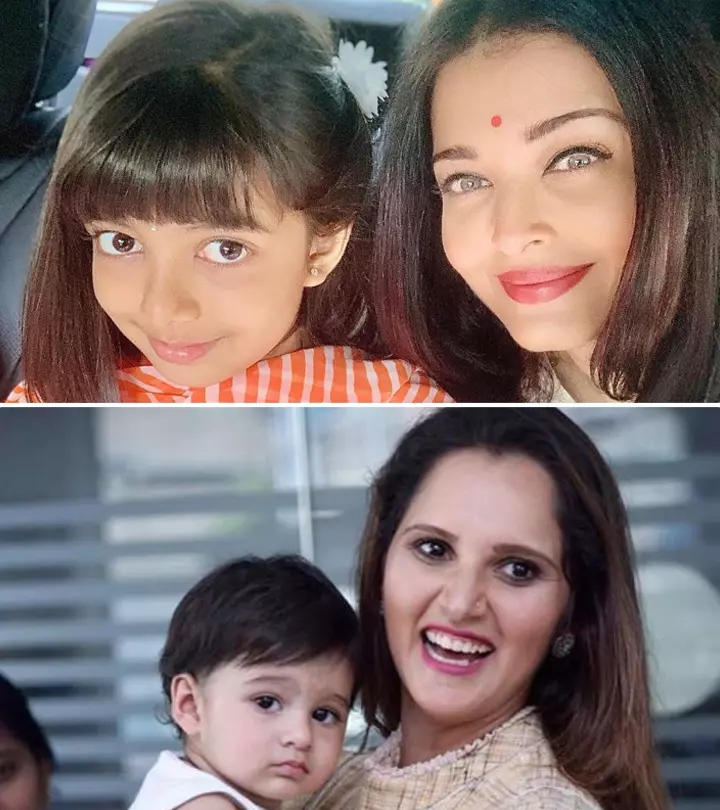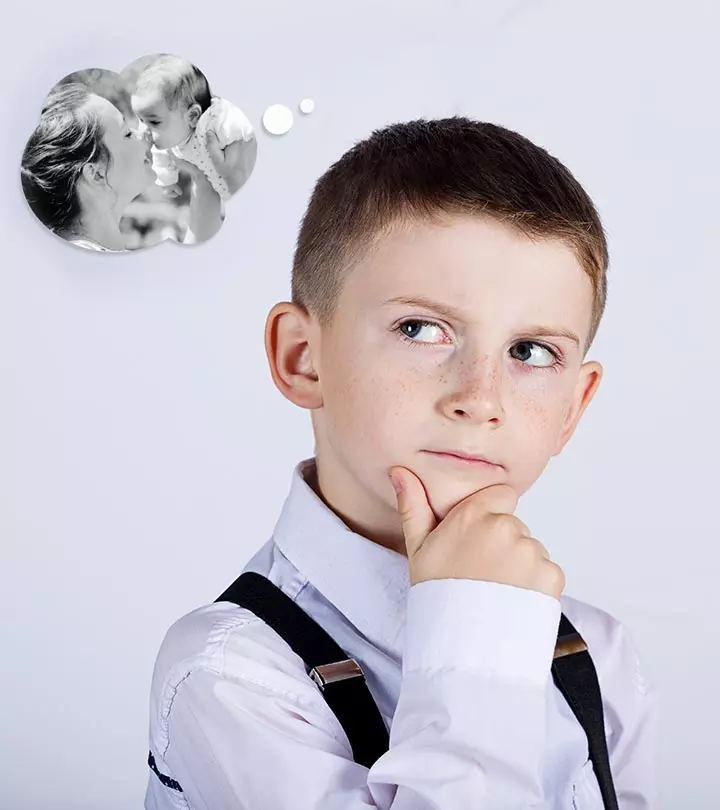

Image: Shutterstock
Does my baby remember me? She smiles at me, she plays with me, but can she remember all that we do together, everyday? As grown-ups, we do not remember our toddlerhood or pre-toddlerhood life. So, when exactly does our brain begin to record things?

Newborns can identify their mother’s voice at birth. Breastfed babies know the smell of their mothers by the first week. Your baby begins to recognize familiar voices and faces even when it is two months old, especially if he sees the person every day. This type of recognition pattern is the earliest instance of memory, but it is distinct from remembering details of a certain events.
- Your baby’s memory develops stage by stage gradually. It cannot be defined by specific age limits. But it is for sure that your baby’s memory began to form right at the time he was in the womb. He can recognize your voice from the third trimester onwards!
- The baby can identify your smell by the first week, and tell the difference between your face and a stranger’s face in the first few weeks after birth. He can recognize his father a few weeks after birth, especially if the father has been around during pregnancy.
- Your baby’s ability to recognize and remember objects or people dramatically increases during its first year. Studies have proven that three-month-old babies can identify new toys or pictures displayed to them some six days ago.
- By ninth month, your baby can record the detailed information of things such as the location of his toys in the house. It is around this time that your baby can imitate actions he has seen even a week earlier, which suggests that your baby has begun to develop his memory. However, he can’t remember everything about his experiences.
- Researchers have discovered that the region of the brain that is crucial to build long-term memory grows in a child’s first year and matures in his second. Harvard University student Conor Liston and his psychology professor Jerome Kegan say that the frontal lobe of the brain begins to grown around the eighth or ninth month. Therefore, most of the memories from the first nine months of a child’s life are lost.
- Kegan also observes that a five-month-old baby doesn’t miss his mother if she is out of sight but by the age of nine months, he is reluctant to leave the parent, which is a clear sign of developed memory.
- The stranger anxiety, whereby your baby is wary of strangers, sets in by the time he is eight or nine months old. It means that by this time, your baby has enough memory to differentiate between familiar people and strangers.
- The long-term conscious memory of specific episodes begins to build only by the time your child is 14 to 18 months old.
- In another study by Nora Newcombe, a psychologist at Temple University in Philadelphia, children aged around 11 were not able to recall the pictures of their preschool classmates, that is someone they saw some seven years ago. But when their hands were wired to measure sweating as a galvanic skin response, the kids displayed biological signals of remembering the faces of their former classmates. Newcombe calls it the unconscious emotional memory at work.
- Newcombe has also found that children aged between three and four years might be able to remember the scenes from images such as a jungle with an elephant but might not remember other details such as the green pastures around the creature. This could indicate that after the ninth month, a baby begins to develop conscious memory, but takes years to build it stage by stage.
- Your baby develops the ability to remember things in two phases. Firstly, he stores information in his brain. Secondly, he recalls the stored information and deciphers it. Deciphering is a gradual process and builds as your baby grows.
- Repeat experience can contribute to building memory. If you play the same nursery tune regularly while pregnant, your baby would recognize the tune by the time he is four months old. The more you expose your baby to specific activities such as singing a particular song or playing a game, the better are the chances for him to recall those events.
- Talk to your baby often, tell stories, narrate events such that they settle in his mind and develop a rich memory. You could also play a memory game with your child.
What memory games do you play with your child? Let us know.
Community Experiences
Join the conversation and become a part of our nurturing community! Share your stories, experiences, and insights to connect with fellow parents.


